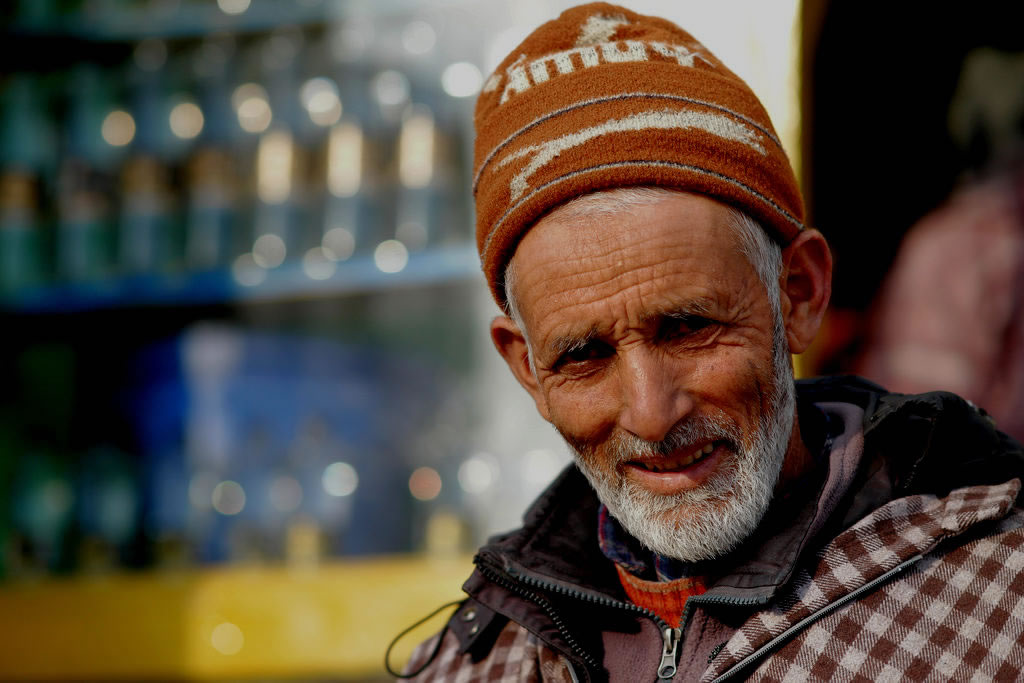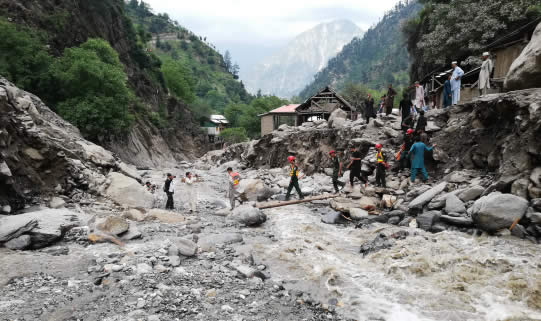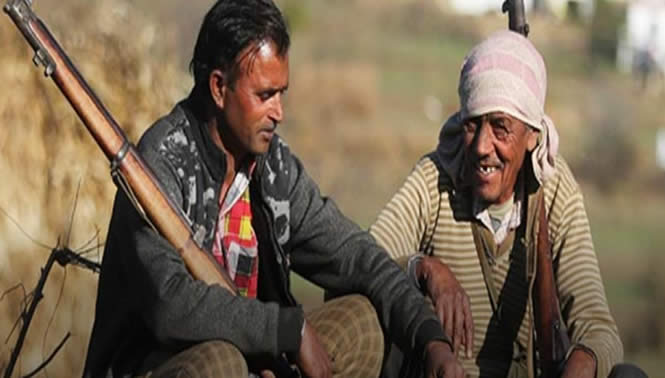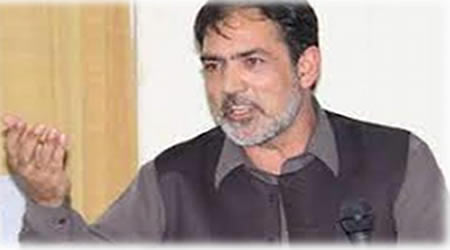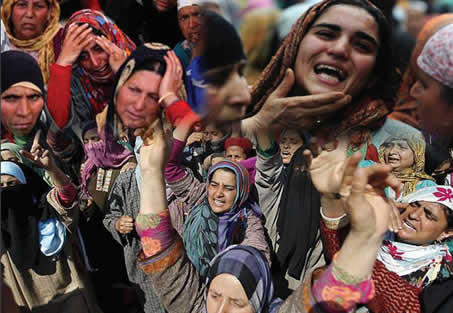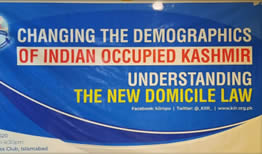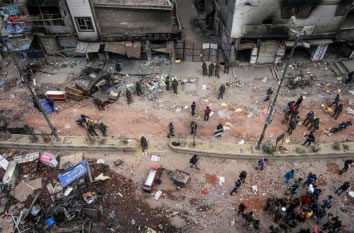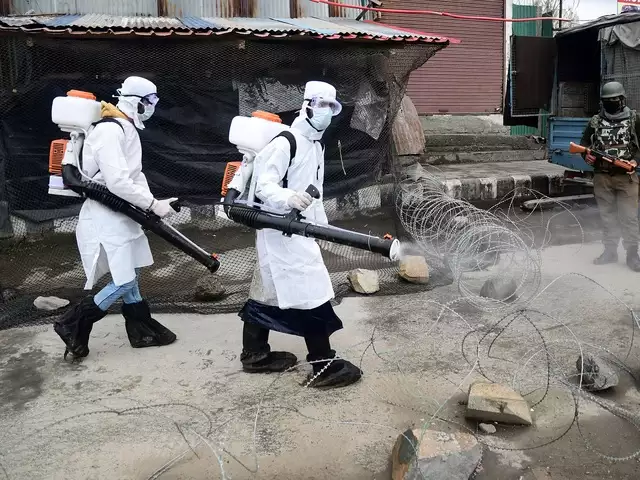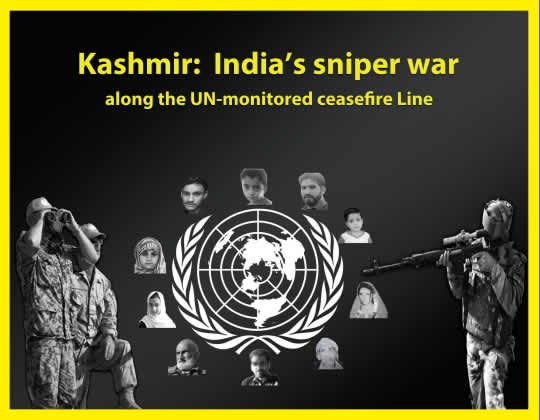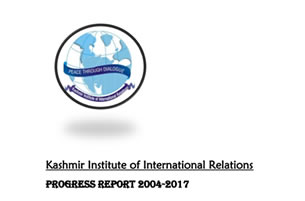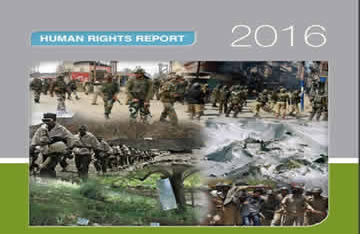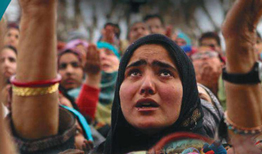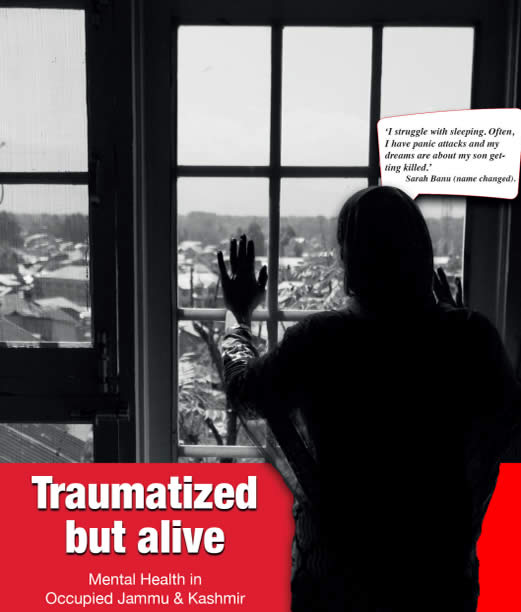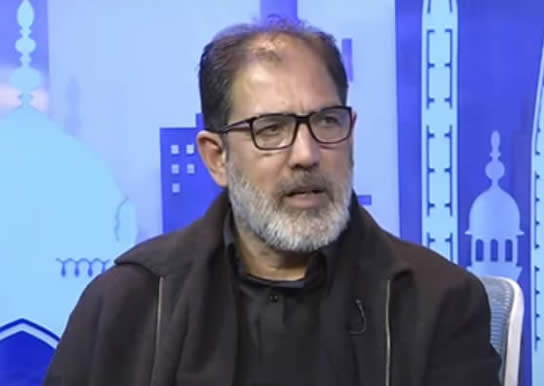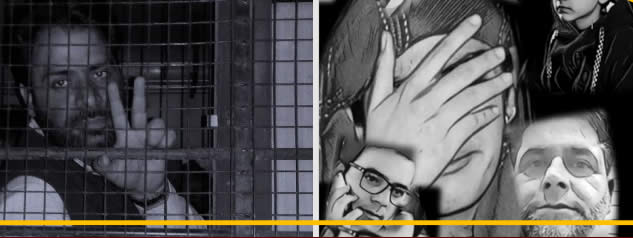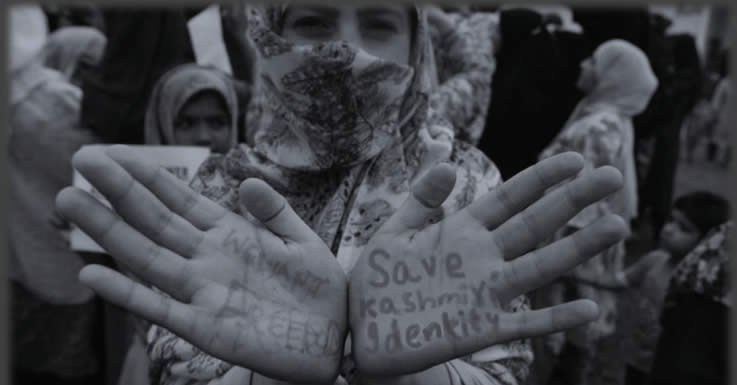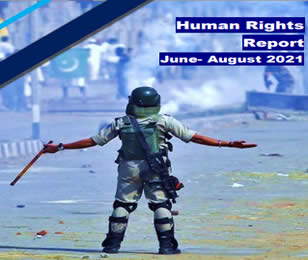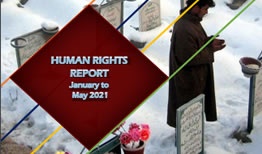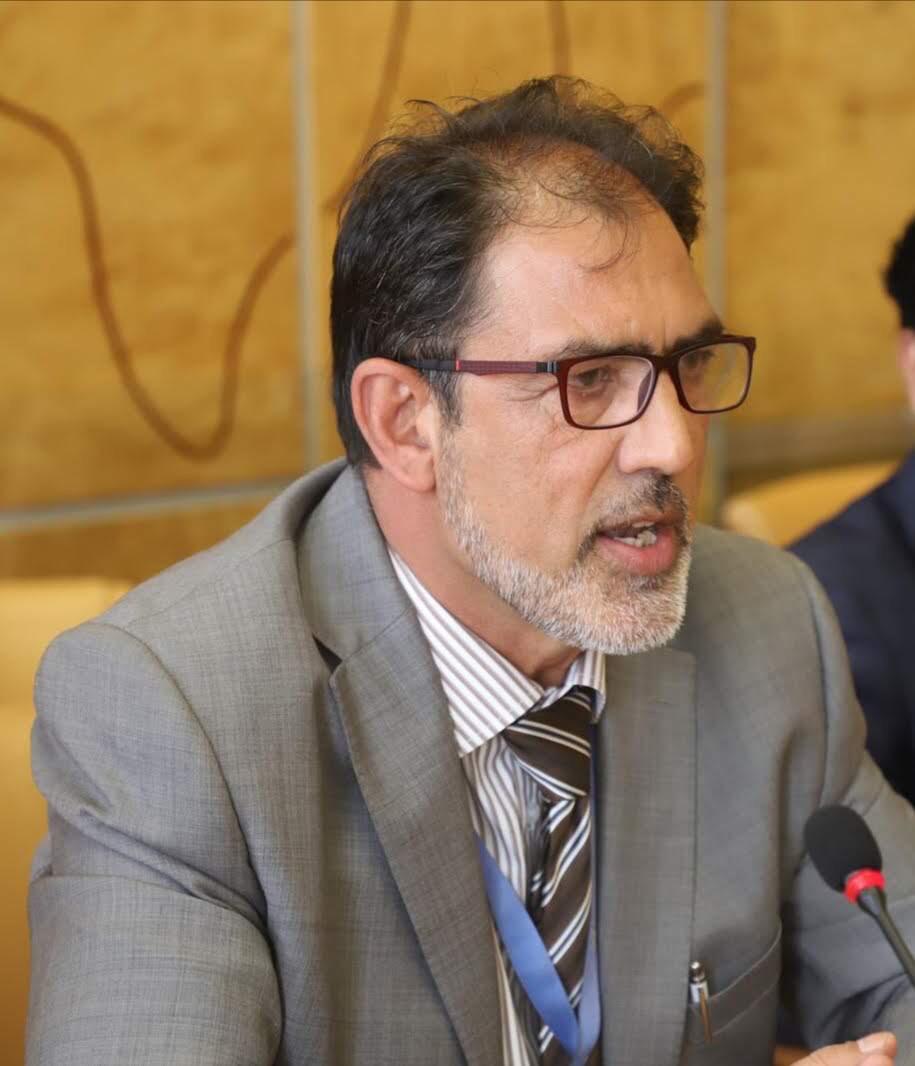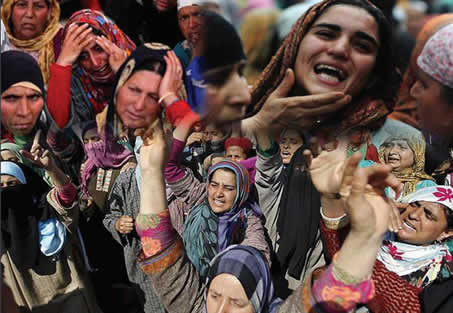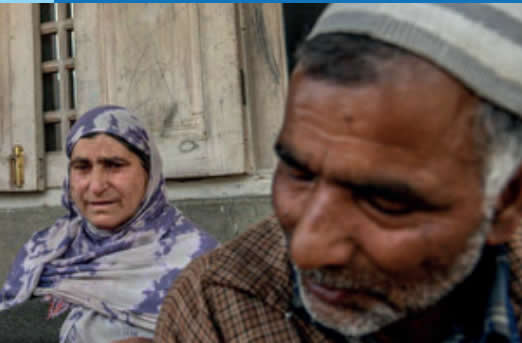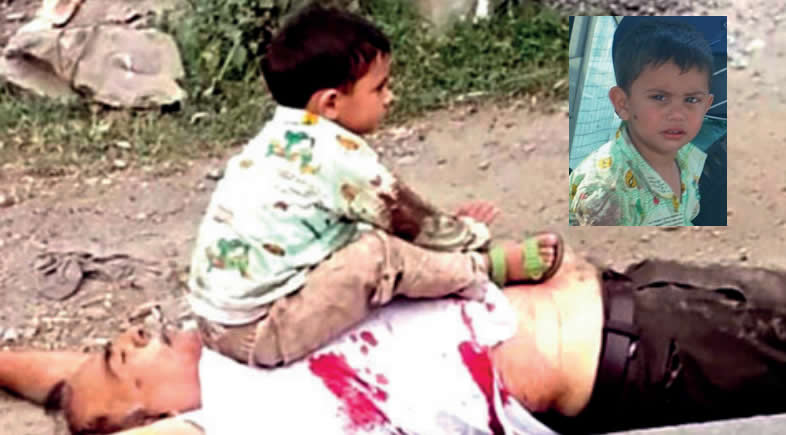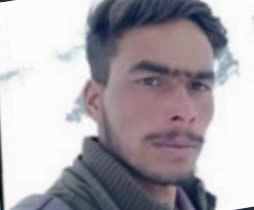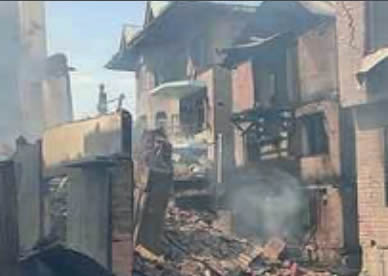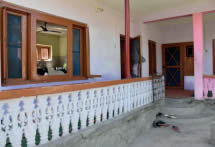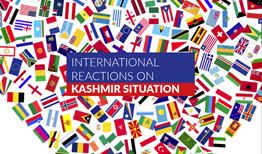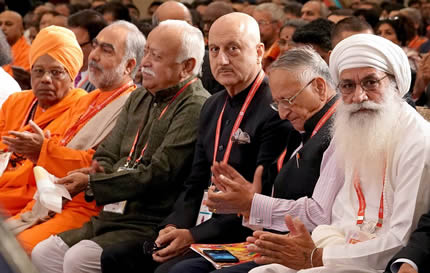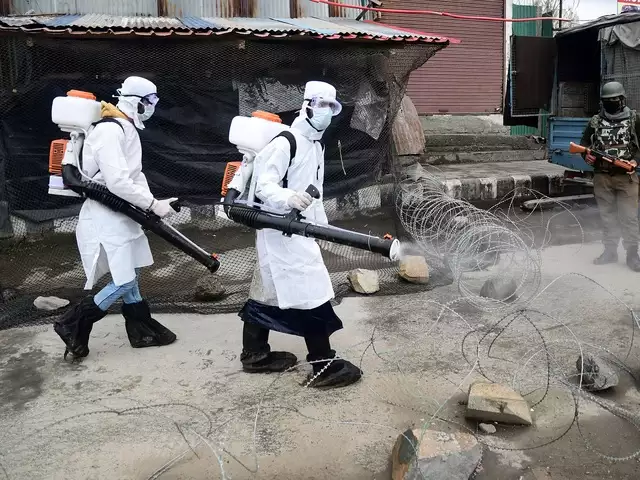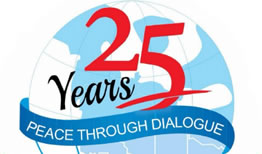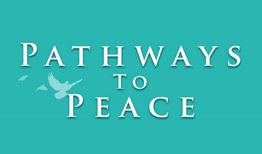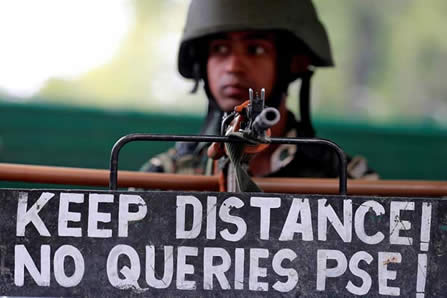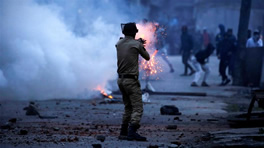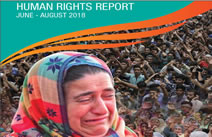INTERNATIONAL CONCERNS OVER KASHMIR ISSUE
Introduction
The continued use of excessive force by Indian security forces to kill innocent civilians and use of shotguns firing metal pellets to disperse crowds, despite evidence that they are inherently inaccurate and cause injuries indiscriminately, is violation of India’s international obligations. The human rights violations in IIOJK has always drawn international community’s attention towards Kashmir.
- In September, following the Turkish president’s critical remarks on Kashmir at the United Nations General Assembly, the Indian government called it “gross interference” in India's internal affairs and “completely unacceptable.”
- The UN High Commissioner for Human Rights Michelle Bachelet voiced concerns over human rights violations in Jammu and Kashmir.
- In August, China called for a discussion on Kashmir at the UN Security Council. India and Pakistan traded allegations and counter allegations at the UN General Assembly in September over Kashmir and persecution of religious minorities.
- In June 2020, terming Kashmir an international issue, several British members of Parliament called for international intervention to resolve the dispute, taking into consideration aspirations of Kashmiris.
- On Feb 10, 2021, five UN special rapporteurs in a letter to the Indian government raised their concern regarding Indian illegal unilateral action of abrogation of Article 370 and said that “It is also feared that the military presence in the area is likely to increase, which might lead to a possible higher risk of human rights violations.”
This report documents international human rights bodies, institutes, INGOs, NGOs, prominent newspapers, prominent personalities, experts and scholars’ statements and news stories that shows Indian occupied Jammu and Kashmir has always been on there radar.
Prominent Personalities

UN Secretary-General Antonio Guterres
"I urge the (Indian) Government to ensure that children are detained as a measure of last resort and for the shortest appropriate period of time, and to prevent all forms of illtreatment in detention. I also urge the (Indian) Government to ensure the implementation of the Juvenile Justice (Care and Protection of Children) Act, 2015, to address the use of children for illegal activities and the situation of detained children. I call upon the government to take preventive measures to protect children, including by ending the use of pellets against children, ensuring that children are not associated in any way to security forces, and endorsing the Safe Schools Declaration and the Vancouver Principles.”
UN Secretary-General Antonio Guterres said in the UN Report on Children 2021.
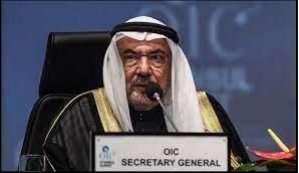
H.E. Dr. Yousef bin Ahmad Al-Othaimeen, General Secretariat of the Organization of Islamic Cooperation (OIC)
“On the occasion of the second anniversary of the unilateral steps taken in Indian Occupied Jammu and Kashmir since 5 August 2019 to alter the internationally recognized disputed status of the territory as stipulated in the relevant UN Security Council Resolutions, the General Secretariat of the Organization of Islamic Cooperation (OIC) reiterates its call to revoke all these steps. It urges to refrain from changing the demographic composition of the disputed territory of Indian Occupied Jammu and Kashmir and to respect the basic human rights of its inhabitants. Furthermore, the General Secretariat reiterates its call on the international community to increase its efforts to resolve the issue of Jammu and Kashmir in accordance with the relevant UN Security Council resolutions.”
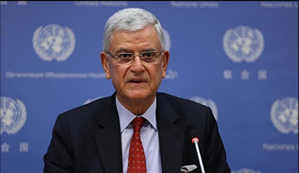
Volkan Bozkir UN General Assembly (UNGA)
President
I must also reiterate that the United Nations' position on Jammu and Kashmir is governed by the United Nations charter and applicable Security Council resolutions," Bozkir had urged Islamabad to raise the issue of Kashmir at the UN "more strongly" and said a special session could be held on the issue if enough countries petitioned for it.

“Allegations of arbitrary detentions, extrajudicial killings and enforced disappearances are
part of what appears to be an ongoing pattern of serious violations of human rights by Indian
government forces in the Jammu and Kashmir region” according to UN experts.
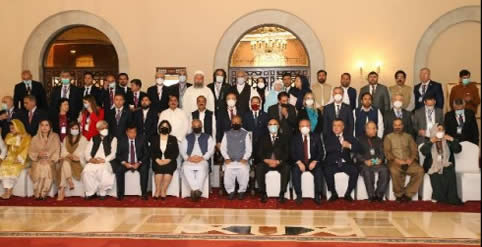
Members of the Parliamentary Assembly of
the Economic Cooperation Organization
Members of the Parliamentary Assembly of the Economic Cooperation Organization
(PAECO) strongly condemned human rights violations in Indian-administered Kashmir, The
unanimous declaration was made by the organization's Executive Council meeting, attended
by parliament speakers from ECO, which currently has 10 members including Pakistan, Iran,
Turkey and Afghanistan. "In its landmark outcome document, The Islamabad Declaration,
the forum extended unanimous support to the oppressed peoples" of Kashmir and
Palestine.

Turkish Parliament Speaker Mustafa Sentop
Referring to the Turkish president’s address at the UN General Assembly and the joint
session of the Pakistani parliament where he raised his voice in support of the Kashmiri
people, Sentop said his country would continue to support Pakistan’s stance on Kashmir.
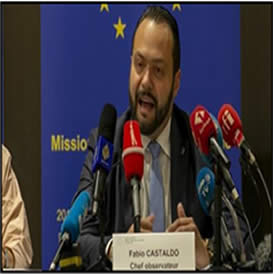
Fabio Massimo Castaldo, 15 members of European Parliament.
“As a champion of universal human rights, fundamental freedoms and the ruled-based
international order, the EU must raise its voice against the violations of human rights
affecting the people of Jammu and Kashmir. In addition to being a humanitarian crisis, the
long-standing dispute over Jammu and Kashmir in south Asia also poses a major threat to
peace, stability, and security in the region. It is extremely important that the voices of
Kashmiri people are heard, their aspirations are responded to and they are granted the
opportunity to decide their own future.”
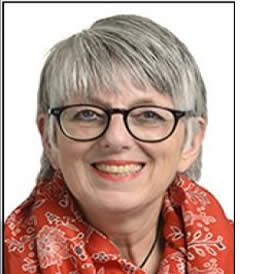
Julia Ward, former member of the
European Parliament
"I don't have a quarrel with the Indian people, and I think it's very important that
we're having these discussions we are absolutely clear about who is responsible
for this and who is perpetrating this, and (that) is the Indian government is
particularly Narendra Modi and the BJP party."

Victoria Schofield, Prominent
British historian and writer
"We should not give up on Kashmir although the tragedy of Kashmir has passed on
generations. It is imperative to forgo the blame game and come to a resolution which
is humane and gives people their due rights."

Danielle Khan, the dean of John Hopkins
School of Advanced International Studies
of the US
"Indian forces are involved in severe human rights abuses in Kashmir and it will
continue to happen if conflict resolution is not achieved." Ms. Khan hit out at New
Delhi for the detention of Kashmiris following August 2019 actions and urged the US
to pressure and compel India to negotiate the Kashmir issue on the table.

Phil Benion, a former member of the EU
Parliament and vice chair of the Liberal
Human Rights Committee
"The international community was not sufficiently pressing India to refrain from
taking illegal actions and committing human rights violations in Kashmir.” He urged
the international community, the US, and UK to pressurize India to stop human
rights abuses in Kashmir.
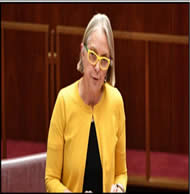
Lee Rhiannon, a former Australian Senator.
"The people of this region (Jammu and Kashmir) have faced seven decades of
extreme human rights abuses, multiple crimes that amounted to acts of genocide,
and India's own involvement in terrorist activities that have targeted this region. I
wish to pay tribute to local Kashmiris, journalists, and local activists who over the
past two years have stepped up their protest, and their resistance. Sadly, many have
died. So, many have suffered and I believe we have the responsibility to publicly stand
with the people of Kashmir."
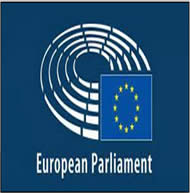
The Sixteen members of the European Parliament expressed their concern in a
letter to the President of the European Commission, Ursula Von der Leyen, and
the Vice-President and High Representative, Joseph Borrell. “It is extremely
important that the voices of Kashmiri people are heard, their aspirations are
responded to and they are granted the opportunity to decide their own future.”
The parliamentarians said the aim of the letter is to bring the attention of the
European Commission to, what they described as the “alarming human rights
and humanitarian situation in Jammu and Kashmir.”
PROMINENT NEWSPAPERS

Un Chief Asks India To End Use Of Pellet Guns On Kashmir
Children
United Nations Secretary-General Antonio Guterres has expressed concern over “grave
violations” in Indian-administered Kashmir and has asked the Indian government to end the
use of shotgun pellets against children.
“I call upon the government to take preventive measures to protect
children, including by ending the use of pellets against children, ensuring
that children are not associated in any way to security forces, and
endorsing the Safe Schools Declaration and the Vancouver Principles,” he
said in the UN Report on Children 2021
The UN report said at least seven schools were used by the Indian security forces for
months. It added that four children were detained by the Indian forces in Indianadministered Kashmir for their alleged association with the armed groups.
“I am alarmed at the detention and torture of children and concerned by
the military use of schools,” Guterres said.
The UN chief said he welcomed the positive engagement of the Indian government with the
UN’s special representative to implement preventive and accountability measures.
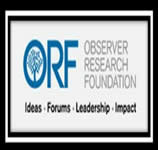
Kashmiris Need Good Administration, Not Statehood Or Elections
The National Democratic Alliance (NDA)-led central government has started its first major
political outreach in the Kashmir valley since 5 August 2019, when the special status of the
erstwhile state was revoked and its geography was bifurcated into the Union Territories of
Jammu and Kashmir and Ladakh. Under this outreach, New Delhi convened an all-party
meeting on July 24 with the valley’s elite club of political leaders—including the chiefs of the
People’s Democratic Party (PDP) and National Conference (NC)—which was a significant
development. After the meeting, New Delhi said that exercise of delimitation and peaceful
elections were important signposts for the restoration of statehood. The political outreach
comes days after the Union Home Minister, Amit Shah, had a lengthy meeting with Lt.
Governor Manoj Sinha in the presence of NSA Ajit Doval and the Union Home Secretary,
Ajay Bhalla.
In the past two years, the valley has witnessed an uneasy calm and issues such as restoration
of statehood, delimitation, elections, and even further bifurcation have been points of
conjecture; however, the trust and aspirations of the common Kashmiris is more important
than the political outreach with the political elites of the Union Territory.
In the past two years, the valley has witnessed an uneasy calm and issues such as restoration
of statehood, delimitation, elections, and even further bifurcation have been points of
conjecture; however, the trust and aspirations of the common Kashmiris is more important
than the political outreach with the political elites of the Union Territory.
Bifurcation and the reasons behind it
The revocation of Article 370 was deemed as an inevitable technical necessity by New Delhi
to politically transform the state, which has been marred by centrifugal tendencies and violent
insurgency for the past 30 years. The revocation and subsequent bifurcation was defended by
the Union government, which claimed that the decision would facilitate better administration,
good governance, and faster economic development. New Delhi even argued that Article 370
was the “root cause” of radicalism, corruption, and terrorism. These arguments essentially
quantified the conflict in Kashmir and suggested that the unending violence is supplemented
by the aspirations of the common people.
https://www.orfonline.org/expert-speak/kashmiris-need-good-administration-not-statehood-orelections/

Education Interrupted: Kashmir Students Climb Mountain To Cross
Digital Divide
The pandemic has interrupted access to education for young people all over the world. But
in the disputed Indian-administered region of Kashmir, students have faced school closures,
not just once, but twice.
In 2019, as India revoked the region’s special status and tens of thousands of troops were
sent in, a curfew closed all schools in the area.
Then just as schools were beginning to reopen, in 2020 the pandemic hit, forcing millions of
students to study online. A BBC investigation has discovered, throughout lockdown, students
from more than 150 villages in the area have had no access to online lessons. In the remote
Himalayan village of Limber, students must traverse a mountain, all in order to get access to
an education.

Rumours Fly Thick And Fast In Kashmir Due To Large Troops
Movement
A large movement of troops in recent days has led to rumours flying thick and fast in Kashmir
that “something big” like August 2019 was going to happen again. Similar rumours were going
agog in Kashmir prior to the revocation of J&K’s special status on 5 August 2019, as massive
troop build-up had started to happen 10-days before the colossal decision by the BJP
government. Reports say in the last few days a large number of paramilitary forces have
arrived in the union territory with most of them deployed in north Kashmir and parts of
Jammu region. This has led to rumour mongering and from homes to offices, markets to
playgrounds and social media, everywhere people are discussing how the Center is planning
“something big” like 5 August 2019. A common rumour is that statehood will be restored to
the Jammu region while Kashmir will be divided further into two or three union territories.
Another rumour making rounds is that Kashmir Pandits will be given a separate homeland
within the Valley which has been their long-pending demand. Not only locals but high-profile
politicians too have joined the bandwagon on social media.
https://www.deccanherald.com/national/north-and-central/rumours-fly-thick-and-fast-inkashmir-due-to-large-troops-movement-994673.html

In Three Years, Kashmir Witnesses 1500% Increase In Drug Abuse
Thousands of people, mostly youth, from Kashmir are slipping into the dark alleys of drug
addiction as the Valley has been flooded with huge quantities of heroin coming via Line of
Control (LoC) from Pakistan in recent years. Doctors at drug de-addiction centre of Institute
of Mental health & Neurosciences (IMHANS) in Srinagar said that the facility has been flooded
with patients taking deadly drugs like heroin in the recent years. The data revealed that there
has been more than 1,500 per cent increase in patients approaching the hospital seeking
treatment for substance abuse in three years. While 489 drug abusers had reported at the
IMHANS in 2016, the number grew to 7,420 in 2019.
In 2020, the number dropped to 3,536 apparently due to Covid-19 lockdown. Similarly, the
Opioid Substitution Therapy (OST) registrations have also seen a steep rise at the IMHANS.
From 139 patients seeking treatment between 2012-2015, the number grew to 309 in 2016-
2019. But there has been a huge jump as 495 patients reported at the IMHANS de-addiction
centre in 2020, while the number has already crossed 500 in just the first five months of this
year.
Of the 309 patients who reported from 2016-2019, over 47 per cent were from urban areas,
while over 52 per cent were from rural areas. 73.8 per cent among them were unmarried,
while 35 per cent were up to the age of 25 years and over 53 per cent were in the age group
of 26-35 years. Dr Yasir Rather, in-charge of the de-addiction center of IMHANS, said that
the pattern of drug abuse in Kashmir has changed over the years. “Most of the patients we
have been receiving since 2018 are heroin addicts and there is a drastic increase in their numbers now,

Un Experts Concerned Over Rights Abuses In Kashmir
5 rapporteurs had sought reply from Indian government on alleged ill-treatment,
disappearances and torture
Allegations of arbitrary detentions, extrajudicial killings and enforced disappearances are part
of what appears to be an ongoing pattern of serious violations of human rights by Indian
government forces in the Jammu and Kashmir region, according to UN experts.
This concern was raised by five UN special rapporteurs in a letter to the Indian government
on March 31, 2021 that was made public by the UN on Monday.
The rapporteurs examine questions relevant to torture and other cruel, inhuman or degrading
treatment or punishment; arbitrary detention; enforced or involuntary disappearances;
extrajudicial, summary or arbitrary executions and the promotion and protection of human
rights and fundamental freedoms while countering “terrorism.”
The experts communicated their concerns to the Indian government by highlighting the cases
of three Kashmiri men -- Waheed Para, Irfan Ahmad Dar and Naseer Ahmad Wani.
Para, a member of the Jammu and Kashmir Peoples Democratic Party, which administered
Jammu and Kashmir in an alliance with the Hindu Bharatiya Janata Party (BJP) until 2018, has
been under detention since Nov. 25, 2020.
The UN rapporteurs said Para was allegedly subjected to ill-treatment at the National
Investigation Agency (NIA) headquarters in New Delhi. He was allegedly targeted for speaking
out about the government and subjected to abusive interrogations after his arrest which lasted
from 10 to 12 hours at a time.
“He was held in a dark underground cell at subzero temperatures, was deprived of sleep,
kicked, slapped, beaten with rods, stripped naked and hung upside down. His ill-treatment
was recorded. Para was examined by a government doctor three times since his arrest last
November and three times by a psychiatrist. He requested medication for insomnia and
anxiety,” the rapporteurs’ letter said.
Also highlighted in the letter was the case of Irfan Ahmad Dar, a 23-year-old shopkeeper who
was arrested on Sept. 15, 2020 near his residence in the Sopore area of northern Kashmir by
the Jammu and Kashmir police’s Special Operations Group (SOG).

“Meant To Intimidate”: Months After Police Raids, Kashmir Human Rights
Groups Remain Dormant
ON THE MORNING of October 28, 2020, rights activist Parveena Ahanger was startled by
the sound of revving engines outside her home in Srinagar, the biggest city in Indianadministered Kashmir. She closed the Quran she was reading from and peeked through a
window; there were nearly a dozen armored vehicles and dozens of police personnel
surrounding her house. Some plainclothes officers came inside and ordered Ahanger to shut
all the windows and lock all the doors. It was a raid by India’s counterterrorism task force:
the National Investigation Agency, or NIA.
Ahanger is the chair of the Association of Parents of Disappeared Persons, a collective known
as APDP that she founded in 1994 — four years after her teenage son was arrested by Indian
armed forces then disappeared. During the raid, NIA officials confiscated the cellphones of
her entire family. The agents later drove Ahanger to her office in Hyderpora, on the outskirts
of Srinagar, where they seized documents and hard drives.
That same day, the NIA also raided the offices and homes of several journalists and other
nonprofit groups. Among the targets was the Jammu Kashmir Coalition of Civil Society, or
JKCCS — a group that documents human rights violations in Indian-administered Kashmir —
and the home of its program coordinator. At both of those locations, too, NIA officials
confiscated electronic gadgets and seized several documents.
The raids were an escalation in the Indian government’s crackdowns on rights activists,
journalists, politicians, and civilians who express dissent and views critical of Indian Prime
Minister Narendra Modi and his Bharatiya Janata Party.

External Concerns are Driving Modi’s Kashmir Strategy
ndia often talks of Kashmir as its “internal matter.” However, it was foreign policy and
geopolitical concerns that underlay Prime Minister Narendra Modi’s recent outreach to a
group of Kashmiri political leaders.
For instance, countering the Chinese threat, which according to India’s Chief of Defense staff
Gen Bipin Rawat himself is India’s top national security priority, was an important reason for
New Delhi’s overture to the Kashmiri politicians.
The intractable Sino-India border dispute has been getting increasingly complicated. With long
rounds of talks between the two sides headed for a stalemate, China has further fortified its
infrastructure in the contested region, raising concerns among Indian intelligence agencies that
Beijing is preparing to camp there permanently. Chinese troops have also begun raising
militias among Tibetan youth, ostensibly to counter the Indian forces. In response to Beijing’s
maneuvers, India has moved more of its own troops to the Line of Actual Control, the de
facto border between the two countries.
But in order to make India’s increased military presence more sustainable, peace and calm in
Kashmir is a prerequisite. That’s what Modi’s outreach was aimed at.
Developments following Modi’s meeting with the Kashmiri leaders have added urgency to
New Delhi’s imperative to normalize the situation in Kashmir.

In Indian Kashmir, few now dare to speak out
Public protests in Indian-controlled Kashmir were once an almost weekly occurrence but two
years after New Delhi imposed direct rule on the region, locals say arbitrary arrests and
intimidation by security forces wielding batons and snatching phones have left many too scared
to voice dissent.
A week before the region's partial autonomy was abolished, and as a massive troop deployment
fanned out to help forestall a local backlash, "Rafiq" was one of thousands put in "preventative
detention".
He believes he was arrested because in the past he had "protested against injustices".
Freed after a harrowing year behind bars, the 26-year-old -- too frightened to give his real name
-- says he is a "broken man"
Echoing accounts from a dozen other Kashmiris told to AFP, he and 30 others were bundled
onto a military aircraft to a jail hundreds of miles from his home where they were "abused and
intimidated".
"A bright light was kept on all night in my cell for six months... It was hard to imagine that I
would come out alive," he said.
He at least was finally released. Activists say that scores of other Kashmiris are languishing in
India's notoriously harsh jails
https://www.france24.com/en/live-news/20210820-in-indian-kashmir-few-now-dare-tospeak-out

Modi Fails to Follow Up on His Outreach to Kashmiri Leaders
On June 24, Prime Minister Narendra Modi met in New Delhi with 14 mainstream political
leaders from Jammu and Kashmir (J&K) including four former chief ministers of the erstwhile
state
His outreach to the J&K leaders came almost two years after his Bharatiya Janata Party (BJP)
government revoked Article 370 of the Constitution, in effect stripping the state of its
autonomy. The BJP government also split J&K into two union territories: Ladakh, and Jammu
and Kashmir
After the abrogation of Article 370, Jammu and Kashmir faced a communication blackout for
over 200 days. The torchbearers of democracy in the valley, its mainstream political leaders,
were detained. Several religious leaders were arrested and kept in various prisons in and
outside the Kashmir valley.
The BJP government tried its level best to extinguish any manifestation of dissent in Kashmir.
More soldiers were brought in to patrol the streets and confine locals to their homes.
Gatherings of over three people were banned. Those who came out on the streets to voice
their feelings of betrayal by the Indian government were met with pellet guns. Far from
integrating Kashmiris into India, as Home Minister Amit Shah promised, the silencing of
Kashmiris alienated them from New Delhi.

Pandemic Precipitates Mental Health Issues In Kashmir
Seven years ago, 45-year-old Yasmeen* witnessed the death of her brother, who was caught
in a cross-fire between militants and army personnel in Kulgam, 67 km from Srinagar. For
years, she was traumatised by the shrieks and the sight of him dying in a pool of blood. She
was eventually diagnosed with post-traumatic stress disorder and dissociative disorder.
“She is from a poor family and used to procure free medicines from the lone tertiary-care
Government Psychiatry Hospital of the valley in Srinagar. But due to the Covid-induced
lockdown, she could neither visit the hospital for check-ups nor attend counselling sessions,”
Senior Clinical Psychologist Institute of Mental Health and Neuro Sciences (IMHANS) Ajaz
Ahmad Khan said.
Without her medicines and sessions, she had a “major relapse” in May.
Yasmeen’s is not an isolated case. Manzoor Ahmad* (49) from Tral, 40 km from the summer
capital, was diagnosed with Obsessive-Compulsive Disorder (OCD) that left him constantly
fearful and cowering. “As his OCD had aggravated, he relapsed badly. With no stable source
of income during the lockdown, he could not visit the hospital on time and he stopped taking
medicines,” Khan said.
His deterioration was so bad that the local Masjid Committee collected money on his behalf
and arranged a cab to bring him to the hospital in June.
Professor at IMHANS, Dr Yasir Rather, said the pandemic has precipitated a lot of mental
health issues. The lockdown, fear and uncertainty, financial stressors, emotional stressors,
disruption of routine and many other associated changes have resulted in anxiety, depressive
features, post-Covid syndrome, disenfranchised grief and other mental issues, especially
among the marginalised sections of the society.
https://countercurrents.org/2021/08/pandemic-precipitates-mental-health-issues-in-kashmir/

Modi Is Trying to Engineer a Hindu Majority in Kashmir
Under the smokescreen of electoral redistricting, New Delhi is using gerrymandering to
politically neuter the region’s Muslim majority
The Indian government has commenced preparations to redraw the electoral boundaries in
Indian-administered Kashmir two years after New Delhi rescinded the disputed region’s semiautonomous status and introduced tighter federal controls.
In 2019, New Delhi hoped that ratcheting up federal control would make it easier to subdue
Kashmir’s population and many groups’ calls for self-determination. It has since unleashed the
wrath of federal agencies on local politicians, traders, publishing houses, and even government
employees who have been or potentially could become sources of dissent.
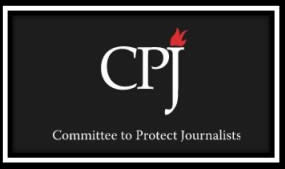
Kashmir Police Raid Homes Of Journalist Qazi Shibli And His Family
Members
Washington, D.C., August 6, 2021– Authorities in Indian-administered Jammu and Kashmir
should cease harassing journalist Qazi Shibli and allow him to report freely, the Committee
to Protect Journalists said. At approximately 1:00 a.m. on August 5, police raided the home
of Shibli, editor of the news website The Kashmiriyat, in Anantnag city in central Jammu and
Kashmir, for approximately two hours while he was not there, according to Shibli, who spoke
with CPJ via phone
Shibli’s mother, two sisters, sister-in-law, two brothers, nephew, and niece were present
during the raid at his home, according to Shibli, who said that police confiscated the adults’
phones and computers. Shibli said his own laptop and phone were with him at the time of the
raid. At approximately 1:30 a.m. the same day, Kashmir police also searched the homes of
Shibli’s cousin and grandmother for roughly 20 and 30 minutes respectively, he said.
The raids on the homes of Qazi Shibli and his family members add to the ongoing pattern of
targeted harassment against journalists in Jammu and Kashmir, which must come to an end
immediately,” said Steven Butler, CPJ’s Asia program coordinator. “Police should cease
harassing Shibli and allow him and other members of the press in Jammu and Kashmir to
report freely.”
Police broke the lock of Shibli’s home and forcibly entered the premises without
demonstrating a warrant or providing a justification for the raid, according to Shibli. Police
also broke several glasses, window panes, and a security camera outside Shibli’s home, and
confiscated a CCTV intercom monitor, according to Shibli and photos of his home following
the raid, which CPJ reviewed.
https://cpj.org/2021/08/kashmir-police-raid-homes-of-journalist-qazi-shibli-and-his-familymembers/

How two years without Article 370 has hurt Kashmiri workers
As Kashmir completes its second year of lockdown, the people most affected have been its
daily wage workers, who have endured immense mental and financial stress.
What started off as rumours became the worst possible trauma that the people of Kashmir
could have faced on August 5, 2019, when their semi-autonomous status was stripped with
the abrogation of Article 370 and Article 35A from the Indian Constitution.
Days before, when an order for 30,000 additional Indian troops was released to the public,
there was fear that something major was about to happen. People rushed to stores to gather
resources with the expectation that a period of turmoil, which Kashmiris are well accustomed
too could last for a long time.
Shortly after, the Annual Amarnath Yatra was cancelled on the pretext of security. During the
entire time the government of Jammu and Kashmir claimed that “everything is normal”. But
rumours started to swirl that Article 370 was in danger.
Major news then broke out that over 180,000 security personnel were deployed, and there
would be a complete communications gag with satellite communication available only to the
authorities.
The internet went out on August 5, around 12:30am and within a span of three hours Kashmir
was turned into an open prison. Television and local cable networks were stopped, local
newspapers were made to stop publishing, and an information vacuum was created.
The next morning, people dusted off their radio devices and listened to how their rights were
being stripped from them. Article 370 was taken down and the State of Jammu and Kashmir
was divided into two Union Territories: Jammu and Kashmir and Ladakh.
Kashmir remained under communication clampdown for almost six months, with restrictions
continuing after that.

Two years of Kashmir unrest, political void and a sinking economy
Two years after the Modi administration stripped Indian-administered Kashmir of its limited
autonomy, political activity in the disputed region is in a deep freeze, businesses are struggling,
while people’s rights are being suppressed through stringent laws. On this day two years ago,
India’s Hindu-nationalist government led by Prime Minister Narendra Modi scrapped the
region’s special status guaranteed by India’s constitution decades ago and turned the country’s
only Muslim-majority state into a federally controlled territory.
The move included the removal of a ban on permanent settlement of non-Kashmiris in the
region, a step that locals fear is aimed at bringing demographic changes in the region.
The right-wing Bharatiya Janata Party (BJP) government claimed the changes would result in a
better development of the region and boost its economy. But experts and political analysts
say the situation has only deteriorated in the last two years.
Political void
The last state elections in Indian-administered Kashmir were held in 2015, when a regional
pro-India party, the People’s Democratic Party (PDP), allied with the BJP to form the
government.
The region has a group of political parties considered loyal to New Delhi. They contest
regional and national elections, which are boycotted by the region’s separatist groups, who
demand either a merger with neighbouring Pakistan or an independent nation. In 2018, the
BJP withdrew its support to the PDP, toppling the government and putting the state under
the direct rule of New Delhi.
The next year, as the Modi government scrapped Articles 370 and 35A which granted Indianadministered Kashmir its autonomy, dozens of politicians from the region, including three
former chief ministers belonging to pro-India parties, were arrested. Some of them continue to be in jails.
https://www.aljazeera.com/news/2021/8/5/kashmir-special-status-india-two-years-humanrights-economy

Kashmir endures another year of utter despair
Two years ago, on 5 August 2019, Indian Prime Minister Narendra Modi removed the
autonomy of Jammu and Kashmir as a state (the only Muslim-majority one in India) and
redesignated it as two union territories, Jammu and Kashmir (J&K) and Ladakh, which are
governed directly from Delhi. He also scrapped Article 370 of the Indian constitution, which
had allowed J&K to make its own laws, and cancelled Article 35A, which gave its legislature
the power to determine who was a permanent resident of the state.
The effective annexation of J&K was overwhelmingly rejected by Kashmiri Muslims. Pakistan
virulently opposed it, arguing that because J&K was considered by the United Nations Security
Council to be disputed territory, its annexation violated international law.
Modi claimed that this unilateral move would bring peace and development to J&K. Not
surprisingly, this action by his Hindu nationalist party, the Bharatiya Janata Party (BJP), has only
brought more misery and more violence. And, sadly, the future doesn’t look promising.
Within a year, the impact on the economy of J&K was disastrous. Another year later, and
notwithstanding the Modi government’s assertions that the political changes had brought
socioeconomic development to the region, economic activity has come to a standstill. A
double lockdown, political and Covid-driven, has hit the tourism industry very hard. Starved
of international tourists, those running the famous house boats on Dal Lake in Srinagar are desperately struggling to survive.
https://www.aspistrategist.org.au/kashmir-endures-another-year-of-utter-despair/

Indian Police Force End To Kashmir Shop Protest
Traders in Indian-administered Kashmir have accused police of forcing them to open their
shops in the capital, Srinagar, to “portray normalcy” on the anniversary of the revocation of
the region’s special autonomy status.
Residents of the disputed region were observing a spontaneous shutdown Thursday to
protest the Indian government’s decision to revoke its special status on August 5, 2019 — a
move that converted the area from a full-fledged state into two union territories.
Police had warned shopkeepers to refrain from observing a strike on the second anniversary
of the scrapping of Indian Kashmir’s limited autonomy.
A shopkeeper who identified himself as Mohammad Ashraf told VOA that he was at his home
when one of his neighboring shopkeepers and a friend called him saying that police had cut
the locks on his shop and opened it.
Police 'did not care'
“I came running and found my shop open,” Ashraf said, while displaying the broken locks on
the floor. “Policemen did not care about the safety of our goods as thieves could have easily
emptied the products of the shopkeepers in their absence.”
Three men in civilian clothes were seen cutting and breaking the locks in the Budshah-Chowk
area of Srinagar, under the supervision of a large caravan of police. The incident was recorded
in a video that went viral on social media.
For the first time in history, Ashraf said, the Kashmir shops were "forcefully thrown open by
cutting and tearing down the locks. Police work to ensure the safety of the public, but here they have turned into burglars.”
https://www.voanews.com/south-central-asia/indian-police-force-end-kashmir-shop-protest

Police Fire Tear Gas To Break Up Muslim Gathering In Kashmir
Police in Indian-controlled Kashmir fired tear gas and warning shots Tuesday to disperse Shiite
Muslims who attempted to participate in processions marking the Muslim month of
Muharram. Dozens of people were detained. Hundreds of Muslims chanting religious and profreedom slogans took to the streets in the main city of Srinagar despite security restrictions
banning the traditional procession. Government forces used batons to beat journalists
covering the procession, according to a local reporter. Authorities erected steel barricades
and barbed wire to block the crowds.
“We respect the religious sentiments and practices of all, but at the same time, it is also our
joint responsibility to defeat the ill designs of vested interests who try to disturb the peaceful
atmosphere,” police Inspector-General Vijay Kumar said on Twitter.
Muharram is among the holiest months for Shiite Muslims across the world and includes large
processions of people beating their chests while reciting elegies to mourn the death of the
Prophet Muhammad’s grandson. The mourning reaches its peak on Ashura, the 10th day of
the month in the Islamic lunar calendar. Tuesday’s procession marked the eighth day on the
calendar. The traditional religious procession turned violent last year as Indian forces fired
shotgun pellets to disperse crowds, injuring dozens.
Some main Muharram processions have been banned in the Indian-controlled portion of
Kashmir since an armed insurgency broke out in 1989 demanding the region’s independence
from India or its merger with neighboring Pakistan. Tens of thousands of civilians, rebels and
government forces have been killed in the conflict. Kashmiri Muslims have long complained
that the government is curbing their religious freedom on the pretext of maintaining law and
order while promoting an annual Hindu pilgrimage to the Himalayan Amarnath Shrine in
Kashmir that draws hundreds of thousands of visitors. The pilgrimage has been canceled for the last two years because of the coronavirus.
https://www.washingtonpost.com/world/police-fire-tear-gas-to-break-up-muslim-gatheringin-kashmir/2021/08/17/07a3e71a-ff5c-11eb-87e0-7e07bd9ce270_story.html

Uneasy Calm In Indian Kashmir On Second Anniversary Of Loss Of
Autonomy
Troops patrolled the streets on Thursday in Srinagar, the main city of Indian Kashmir, where
many shops were shut to mark the second year since the Himalayan region was stripped of
its autonomy.
In 2019, in an effort to bind the restive region closer to the rest of India, Prime Minister
Narendra Modi's government withdrew long-standing constitutional privileges accorded to
the country's only Muslim-majority state of Jammu and Kashmir.
The measure also split the state into two federal territories including the remote Buddhistdominated Ladakh region, which further angered Kashmiris.
Troops manned checkpoints in parts of Srinagar, which has been a hotbed of separatist
activity, carrying out security checks on people and vehicles, witnesses said.

Hope And Disappointment Under Lockdown In Kashmir – Photo Essay
Having grown up in the troubled Indian region of Kashmir, photographer Showkat Nanda
knew what it was to be “a child of conflict”, the name often used to describe the generations
of Kashmir’s youth since the 1980s. This picturesque Himalayan region has been a source of
conflict between India and Pakistan for decades, with several wars fought over the territory,
and since the 1990s it has been home to a
heavy Indian military presence. Nanda had
already been working on a long-term project
documenting the emotional and psychological
trauma experienced by young people in
Kashmir when he was approached by the
Magnum Foundation for proposals for a photo
essay. 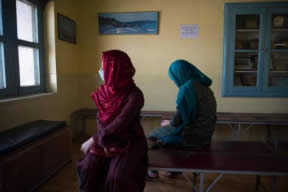 His thoughts turned to a photo he had
recently taken, of two young girls sitting
together in the waiting room of a psychiatric
hospital where they were being treated for
depression, and what they had lived through since 2019.
His thoughts turned to a photo he had
recently taken, of two young girls sitting
together in the waiting room of a psychiatric
hospital where they were being treated for
depression, and what they had lived through since 2019.
 His thoughts turned to a photo he had
recently taken, of two young girls sitting
together in the waiting room of a psychiatric
hospital where they were being treated for
depression, and what they had lived through since 2019.
His thoughts turned to a photo he had
recently taken, of two young girls sitting
together in the waiting room of a psychiatric
hospital where they were being treated for
depression, and what they had lived through since 2019.While lockdowns have been a reality for the world since early 2020, for the people of Kashmir,
their lockdown began seven months earlier. It was in August 2019 that the Indian government
decided to unilaterally revoke article 370, which had given Kashmir, one of India’s few Muslimmajority regions, a semi-autonomous status for almost 70 years. Kashmir was brought fully
under the control of the central Indian government, led by Narendra Modi, and the whole
state was subjected to a military crackdown.
Kashmir. Baramulla. Mubashira talks to her friends while seeing them off after they visited her
home. The friendship and the bond they share have brought a new life in them since schools
opened again after nearly 18 months. 2021
Kashmiris were confined to their homes as thousands of troops moved in, politicians were
arrested, phone lines were cut, the internet was shut down for more than six months and all
schools were closed. Then, to add further to their strife, in March 2020 Covid-19 hit India
and a nationwide lockdown was imposed.
https://www.theguardian.com/artanddesign/2021/aug/02/hope-and-disappointment-underlockdown-in-kashmir-photo-essay
Related Reports
